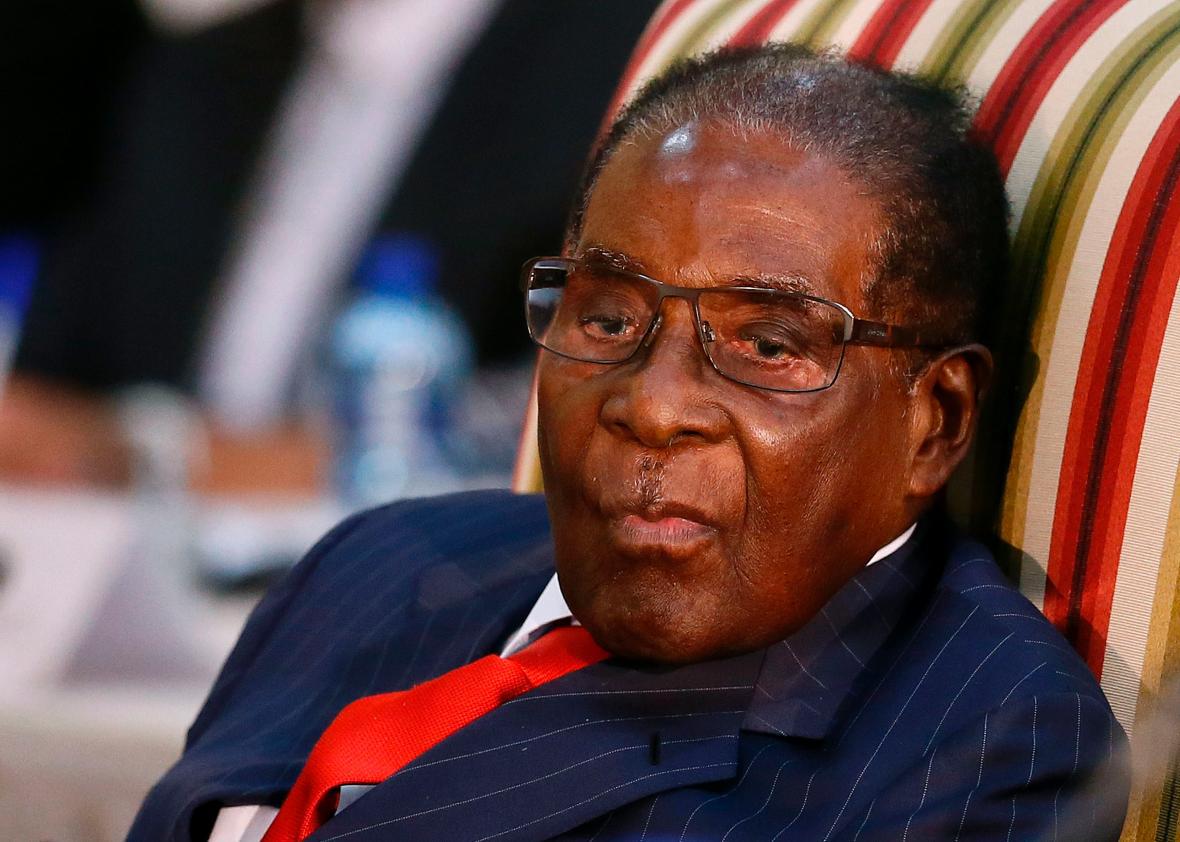The World Health Organization seems to have finally come to its senses Sunday and backtracked on the decision to appoint a brutal despot who has plunged his country into ruins as a “goodwill ambassador.” Human rights groups, and numerous countries around the world, harshly criticized the WHO’s director general, Tedros Adhanom Ghebreyesus, for naming Zimbabwea’s President Robert Mugabe as “goodwill ambassador” on Wednesday.
In the largely ceremonial role, the African leader who is often described as a dictator was meant to focus on noncommunicable diseases, such as heart attacks and strokes, on the continent. But many were quick to point out that Mugabe was not just a brutal despot who has destroyed his country’s once thriving economy, he has also destroyed its public health system. The country’s hospitals are in such bad shape that the 93-year-old Mugabe often travels abroad for medical care. The United States has imposed sanctions on Mugabe for human rights abuses and described his appointment as “disappointing.” The State Department said that it “clearly contradicts the United Nations ideals of respect for human rights and human dignity.”
Samantha Power, who was U.N. ambassador during Barack Obama’s administration wrote on Twitter that “the only person whose health 93-yo Mugabe has looked out for in his 37 year reign is his own.”
On Sunday, the WHO said it was rescinding the appointment. “Over the last few days, I have reflected on my appointment of H.E. President Robert Mugabe as WHO Goodwill Ambassador for NCDs (non-communicable diseases) in Africa. As a result I have decided to rescind the appointment,” Tedros, the first WHO leader to come from Africa, said. At the time of the appointment, Tedros praised Zimbabwe as “a country that places universal health coverage and health promotion at the center of its policies to provide healthcare to all.” But in the end the decision to rescind the appointment was “in the best interests of the World Health Organization,” he said.
Mugabe was head of the African Union when the bloc of countries endorsed Tedros, who was formerly a health minister in Ethiopia, to take over the top spot at the WHO.
